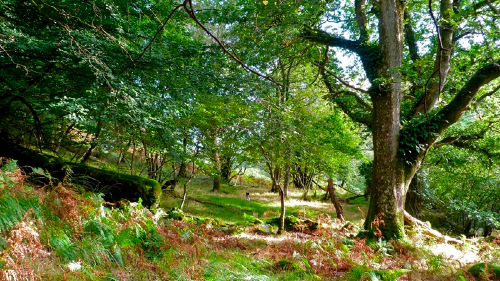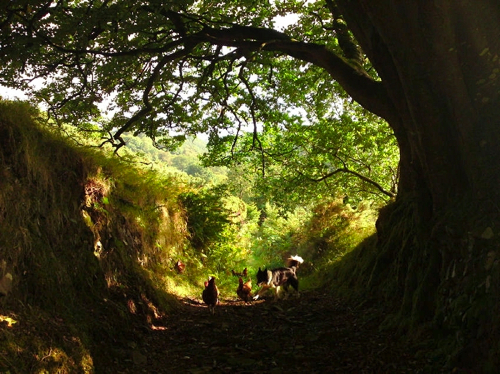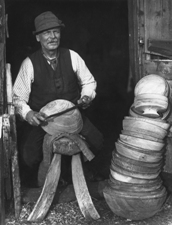On the 25th July the UK government announced continued subsidies for electricity production from biomass, which according to the UK government will help meet its renewable energy targets. The same day, Drax confirmed it would be converting a North Yorkshire power plant for using ‘mainly biomass’.
The axiom that sustainable forest management provides a sustainable crop of timber does not equate with the quantity of fuel required to power the UK. There is simply no where near enough home grown material to burn and much processed material is imported.
But assuming the need for renewable energy is to actually tackle the carbon emission problem, biomass is not the answer in its current form as it doesn’t negate carbon emissions let alone reduce them. See Biofuel Watch’s ROCS decision press release.
The commercial ‘biomass’ sector is still at a distance from the majority of the UK tree and forestry industry, and with subsidies added into the equation it places our forests at risk from serious exploitation, as well as lesser regulated forest industries abroad.
The lack of a wider standard value for ‘woodchip’ is a serious problem. Woodchip is a good sustainable product – waste from honest and necessary arboricultural operations, which can be used as a highly effective mulch for the horticultural industry allowing; an increase in soil carbon storage; the reduction of surface water run off; reducing soil consolidation and helping to regulate nitrate run off etc.,
Woodchip is often touted as an end product to bolster the financing of community woodland as it is also an excellent product for local domestic wood fuel needs.
So why do arborists struggle to sell, even give away this product?
The vast majority of practitioners and contractors working with the UK’s trees and forests are small businesses. However there are increasingly more companies who are not ‘traditional’ forestry companies but multi-service providers who must be able to compete with the smaller businesses, despite having higher administration overheads. They win tenders by reducing the labour rates dramatically as well as having secondary sources of income including woodchip sales.
It would be financially unviable for purchasers from larger scale biomass users, who enjoy substantial subsidies as well, to travel around collecting the smaller loads of woodchip. They need large outlets and the companies who provide such quantities are not the traditional small arboricultural teams but companies that include some of the subcontractors for Network Rail, accused of the stripping of vegetation and the habitats contained within them during nesting time.
Are our green corridors and other valuable green places being ravaged to supply the biomass industry, one of the few industries enjoying rapid and ensured growth?
Trade is far too loosely regulated. Traceability for ALL wood fuel is essential to protect not just the forestry and arboricultural industry, but all biodiversity in all landscapes and to ensure progress towards sustainable development is not compromised.
The biomass industry at present is not even close to real sustainable development. The lack of transparency seems deliberate and designed to allow a freedom to profit as much as possible as quickly as possible. How will the selling of ‘biomass’ as an element of the green economy sit with the British population when they learn that it is also responsible in the actual reduction in biodiversity.
Biomass and the woodchip market have the potential to be at the forefront of sustainable development; with long term management of areas such as those belonging to Network Rail for coppice, sustaining future needs as well as protecting biodiversity. But the power needs to be in the hands of the real forest and arboricultural industry, with the knowledge and qualifications to ensure it is genuinely sustainable.




























I’d be interested to know who wrote this piece ? Please feel free to contact me at rodleslie@btinternt.com.
It’s quite correct in identifying the issues around ‘big biomass’ but what is missing is where we are at in England at least. The Government’s Woodfuel Strategy which I led recognised these issues – in particular, that the scale of woodland in England simply isn’t suitable for this sort of big industrial use, even if the wood was there – it radically directs wood for energy to local use with the emphasis on heat, not electricity generation. And it is backed up by its own subsidy – the renewable heat incentive. The strategy could be one of the best exemplars of appropriate sustainable development in the face of the often inappropriate big business solutions of global companies and their highly paid lobbyists. Its a credit to the last Government that it went this way – and to the present one that it kept the policies in place.
The Woodfuel Strategy does a whole load of things that big electric wouldn’t:
Creates new local businesses & brings neglected woods into management
much of our wood is in areas where mains gas isn’t available – and where fuel poverty is high
Modern heat boilers can be over 90% efficient – compared to co-firing for electricity which struggles to top 50%
Minimises transport – especially in the heavily wooded south east where we really don’t need more lorries trundling around
So why doesn’t it pay ? The simple answer is it does – prices for hardwoods for firewood have rocketed in the last 5 years. However, its an immature market and there are streams like waste wood still coming in at very low prices and, similarly, arboriculturalists for whom getting rid of arisings is a problem haven’t yet fully exploited the opportunity.
Things look a bit better on the big electricity side, too: a lot of the people involved up till now have had no forestry knowledge whatsoever – and that includes people in government – but Drax now has Matthew Rivers sourcing biomass. Matthew is a very experienced international forester and at the ICF conference this spring stated quite clearly that for the same reasons as those behind the Woodfuel Strategy he didn’t see Drax sourcing its biomass within the UK – which makes sense as he’s looking for somewhere near the total UK current wood production ! He’s confident he can find it abroad, from sustainable sources and he knows a good deal more about that than I do.
There are still big issues: subsidised energy sucking in wood from ‘higher uses’ like construction which also lock up carbon for far longer.
But, in contrast to so many renewable energy issues, more woodfuel has the potential to reverse the fortunes of our woodland wildlife because the biggest threat to many iconic species including Nightingale, Dormouse and Fritillary butterflies is lack of management leading – and woodfuel could reverse this.
Provides the potential for real. long term fuel security in rural areas